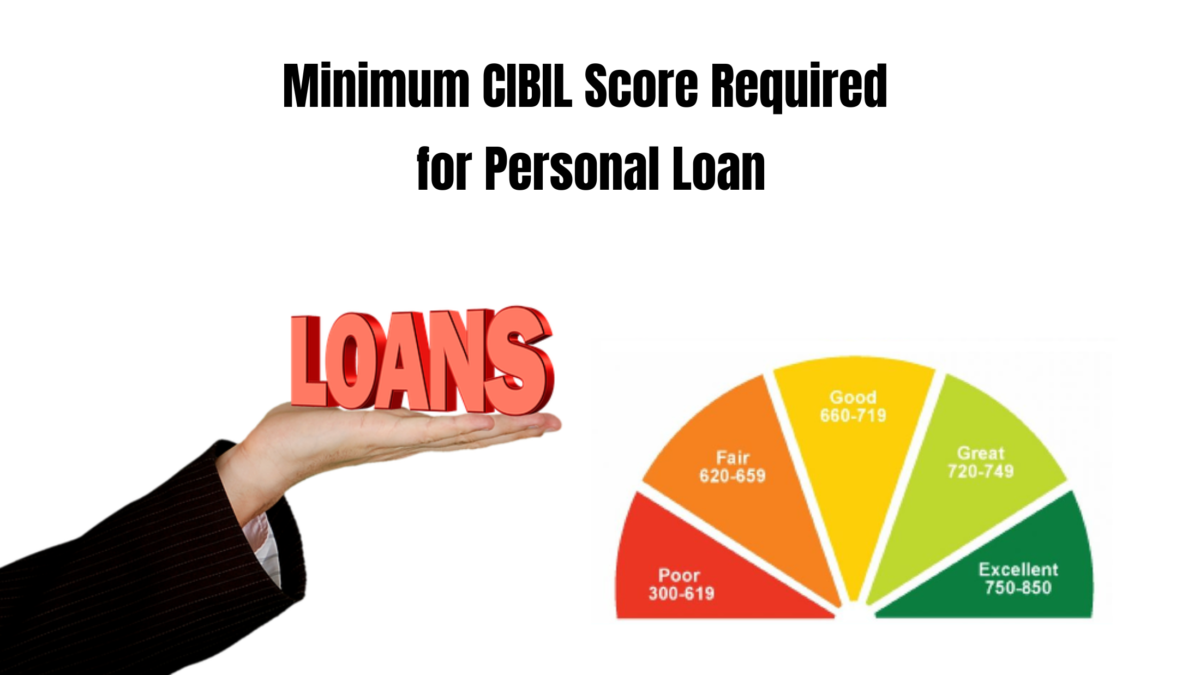A Personal loan is an unsecured financial product. It means the lender does not demand any form of collateral against the loan they issue. Personal loans carry a higher amount of risk than secured loans. For this reason, the lender or financial institution takes measures to protect their investments and finances. Checking the borrower’s CIBIL score for loan authorization is the first step.
What is a CIBIL Score?
A CIBIL score is a representation of an individual’s creditworthiness and repayment history. This number is based on the loans you have taken in the past, the timeliness of your payments, and the financial institutions that have accepted or rejected your previous loan applications. Your CIBIL score is calculated on a scale of 300 to 900 and is the foremost agency providing credit scores for individuals. Credit scores are synonymous with CIBIL scores since it is the most reliable and trusted assessor.
An individual with a high credit score is more likely to receive favorable terms and a lower interest rate on their loan. But what score is considered ‘high’ depends on the loan you wish to borrow.
How is a CIBIL Score for Loan Approval Calculated?
Most people understand the importance of a high CIBIL score, but not everyone knows how this number is calculated. Here is a breakdown of all the factors that contribute to a CIBIL score and their respective weightage.
- Repayment history of an individual – 35%
- The current debt of the individual – 30%
- Total duration and tenure of debt servicing – 15%
- Amount and number of loans applied for or taken – 10%
- The Credit Mix – 10%
If you have never taken a loan before, your CIBIL score could be slightly lower than required. Financial institutions have no way to determine your creditworthiness since you have no credit history. However, since you have presumably reached adulthood without having to borrow money, you are likely financially sound. In this case, other factors such as your current income and age are considered.
Minimum CIBIL Score required for Personal Loan:
There is no fixed minimum CIBIL score required for a personal loan. For favourable terms on your personal loan, you must have a CIBIL score of at least 750. Such a score is considered high for personal loans. You meet the eligibility criteria for higher principal loan amounts, lower interest rates, and quicker loan approval. You can negotiate the rate of interest the bank gives you. Without any collateral, a high CIBIL score is the greatest assurance for a lender that their money will be repaid.
If you have a CIBIL score higher than 750, your loan approval process goes much faster. You can get a higher loan amount approved too, while the banks remain open to negotiating your interest rate. Overall, the loan approval is a simpler and more hassle-free process.
That being said, you can still get a loan if you have a lower credit score between 600 and 750. The only drawbacks are you might not get loan approval for a high amount and have to pay a higher rate of interest.
How to Improve Your CIBIL Score:
If your credit score is low, you will get a personal loan albeit not on the terms you might want. So before you apply for a personal loan, you can follow certain steps to improve your credit score. These are as follows:
- Improve your income:
A higher and stable income tells your lender that you have sufficient means to pay back the amount you borrow. However, for some NBFCs, your monthly income is not the only factor considered.
- Pay your taxes:
An applicant who pays their taxes regularly comes off as a reliable and creditworthy borrower.
- Maintain a healthy account balance:
A huge account balance is proof of financial stability. A leading financial institution is more likely to give a loan to someone with a higher amount of personal capital at their disposal.
- Choose a co-applicant or guarantor while applying:
If you have a partner or family member with a higher CIBIL score than you, they can apply for the loan on your behalf or be a co-applicant with you.
- Reduce your principal loan amount:
A CIBIL score lower than 750 will mean greater restrictions on your loan application and approval. One of the restrictions is on the principal amount approved for you. If you reduce your requested amount, your loan can get approved faster and at a lower rate of interest.
- Pay bills on time:
How you repay other debts is an indication of your repayment of future loans. Make sure your credit card bills are paid on time every month.
All of these actions can help improve your CIBIL score. You can also use the personal loan EMI calculator given on the websites of lending institutions to see how much you need to pay each month as EMIs.


